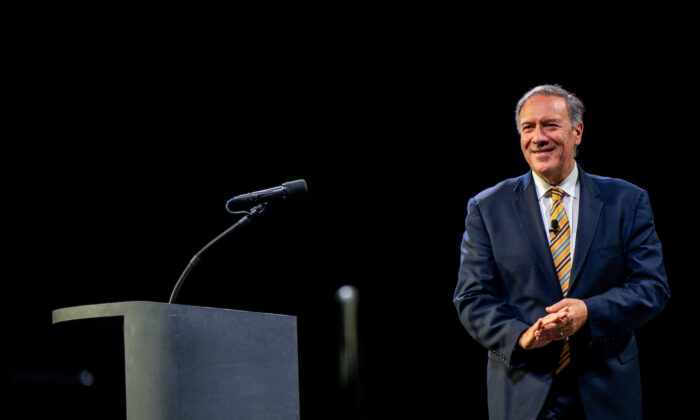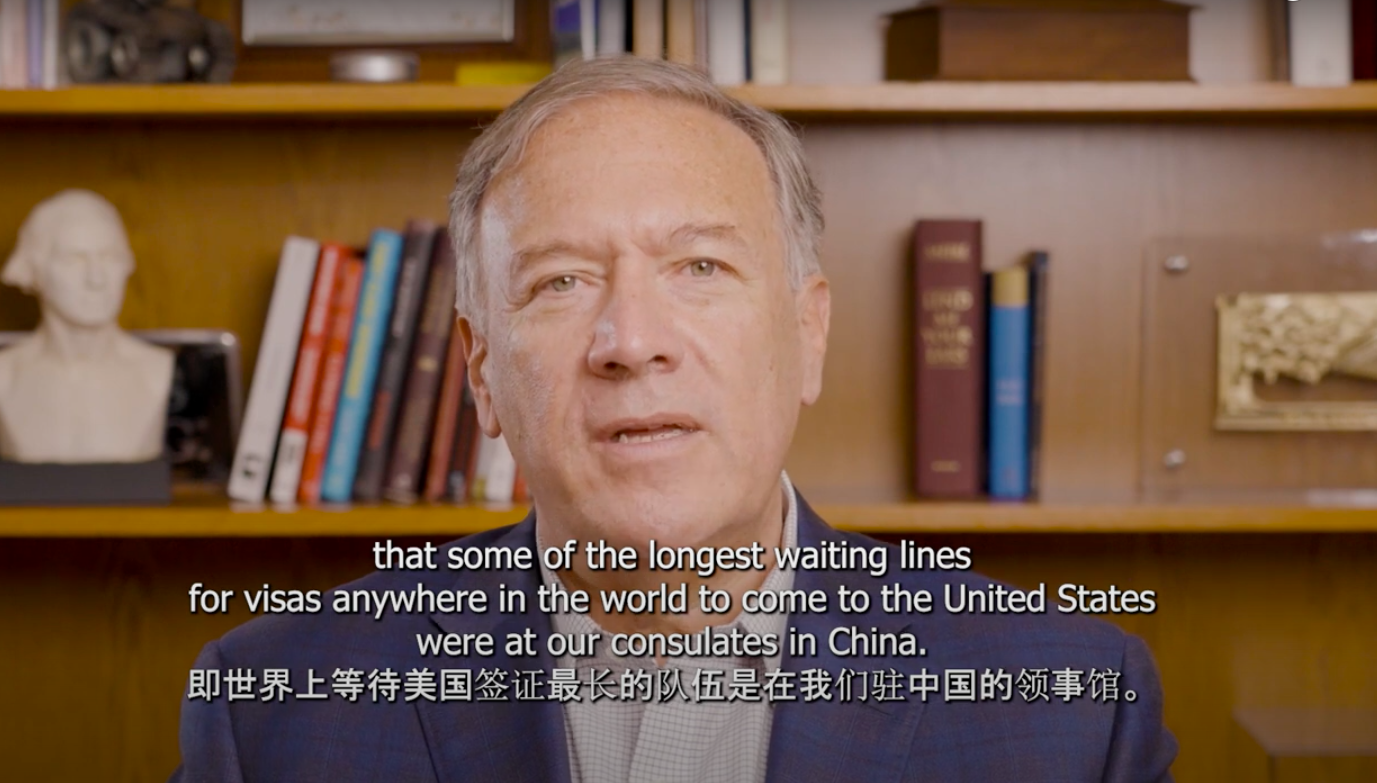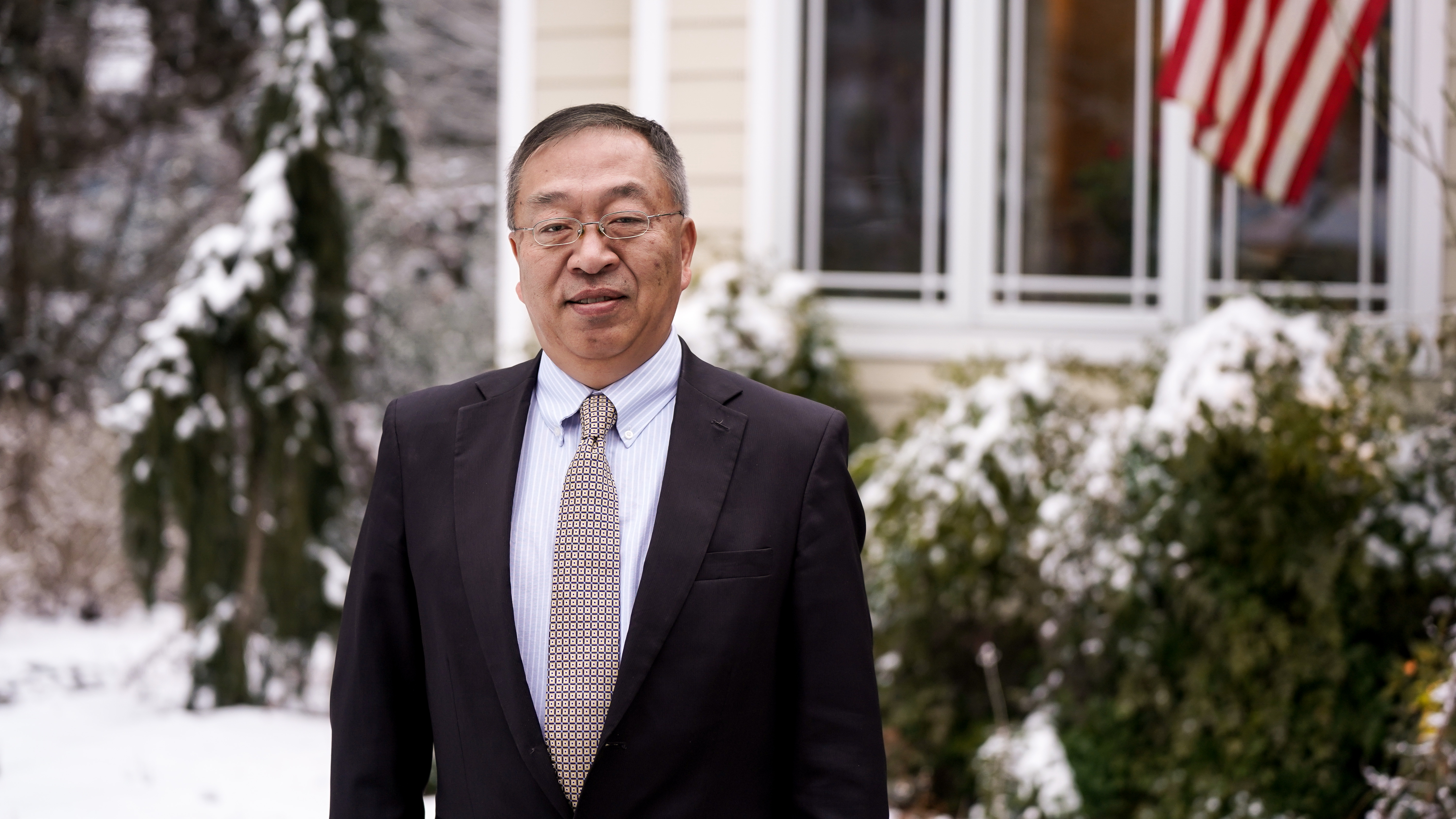
Former U.S. Secretary of State Mike Pompeo concludes a speech during the American Freedom Tour at a convention center in Austin, Texas on May 14, 2022. (Brandon Bell/Getty Images)
By
Former U.S. Secretary of State Mike Pompeo has explained the Chinese Communist Party’s (CCP) tactics to divide America using race in the second episode of his new online series.
The series, “Evening Chats with Mike Pompeo: A Message to the Chinese People,” by the Hudson Institute’s China Center, went online with episode one on Sept. 14. Episode two, “The CCP Lies About Race in America,” was aired Sept. 26.
“I want to talk about how the CCP tries to divide Americans based on race and how it lies to the world about the United States of America,” Pompeo said.
“The worst lie they tell is that America is somehow a racist country. [But] that is the exact opposite of the truth,” he said.
“America is the only country in the world founded on the idea that all humans are treated and created equally.
“America is not perfect,” he said adding how South Carolina Senator Tim Scott stated, “Original sin is never the end of the story. Not in our souls and not for our nation. The real story is always redemption.”
“We fought a Civil War over slavery. Through abolition, Civil Rights, and women’s suffrage, we’ve become better and stronger,” he added.
However, Chinese state media only report events in the opposite tone.
The CCP has manipulated a broad range of topics to highlight that the United States has permeated with deep-rooted racism and issues of discrimination.
CCP’s Propaganda Machines
A recent example, on Sept. 17, the Oscars apologized to native American actor Sacheen Littlefeather as she was booed off the stage of the 1973 ceremony after a 60-second speech about an Indigenous people’s protest at Wounded Knee, South Dakota. Littlefeather was then excluded from the film industry for decades.
Academy of Motion Picture Arts and Sciences read an apology letter to Littlefeather at an event held in her honor at the Academy Museum of Motion Pictures in Los Angeles on Sept. 17.
Although Littlefeather kindly accepted the apology, the Chinese state-run CCTV reported that racism is “an unhealable wound” in the United States.
The lies of the CCP have also made their way to Americans through Twitter.
“Twitter is not allowed in China, but CCP propagandists use it,” Pompeo said in the episode.
Most Sought After Country
However, despite the CCP’s long-term brainwashing and propaganda, an overwhelming amount of people in mainland China still seek to come to the United States.
“Some of the longest waiting lines for visas anywhere in the world to come to the United States were at our consulates in China,” Pompeo said.
“Countless Chinese people want to visit, want to study, or even immigrate here.”

The screenshot of episode two of “An Evening Chat with Mike Pompeo: a message to the Chinese People.” (Video Screenshot)
Pompeo also highlighted that America “attract more immigrants than any other country in the world [including] victims of the CCP’s genocide in China, [like] Uyghurs and Tibetans.”
“We need to teach our children that America is great, that we are not racist, and we should never give an inch,” he emphasized.
“The undeniable truth, the one that CCP doesn’t want you to know, is that the most anti-Chinese force in history is the CCP.”
Toward the end of the episode, Pompeo said he hopes “the Chinese people will [one day] be able to participate in those same kinds of debates and fights for freedom that Americans have had since 1776.”
“The Chinese people deserve far better,” he added, ending the episode.
In the new series by the Hudson Institute’s China Center, Pompeo aims to speak directly to the people of China about the CCP and U.S.-China relations.
The first episode is titled “The Chinese Communist Party Does Not Represent the Chinese People,” in which Pompeo explains how the CCP is a totalitarian regime that only serves its own interests.
Pompeo now serves as a distinguished fellow at the Hudson Institute, focusing on promoting U.S. national security, technological leadership, and global engagement. He is also the chairman of the advisory board for Hudson Institute’s China Center.
The China Center is now under the leadership of Miles Yu, who previously served as the senior Chinese policy and planning advisor at the U.S. State Department.
Yu specializes in Chinese military and strategic culture, the U.S. and Chinese military and diplomatic history, and U.S. policy toward China.

Miles Yu, former senior China policy adviser to former U.S. Secretary of State Mike Pompeo in Annapolis, Md. (Tal Atzmon/The Epoch Times)